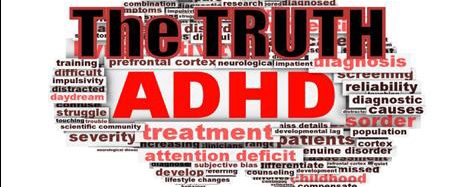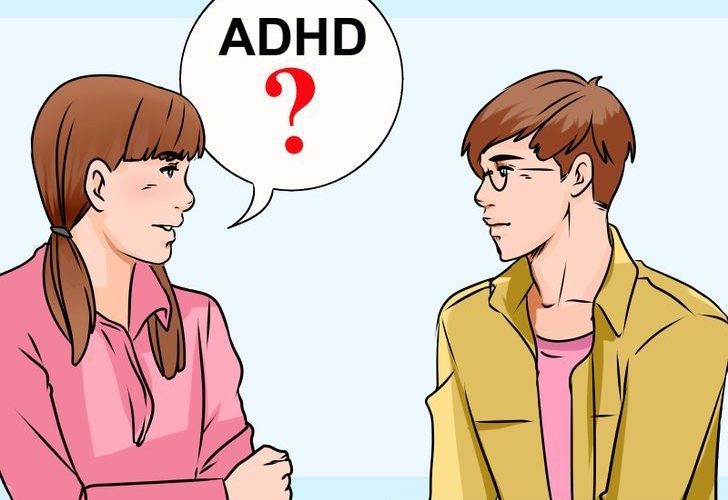Recently, I have begun to notice my obstinate tendency to interrupt others during conversations. I have always considered myself a loquacious speaker, and have been told one time too many that I lack a “filter”, or have no “tact”. This never bothered me before, as I coped with my extroversion by associating with peers who paid no mind to, or at least declined to complain about, my lack of vocal inhibition. But as the years have piled on (I have now matured to a whopping age mark of 30 years), I have realized that my socialization and communicative behavioral deficits are probably the source of my loneliness, dissatisfaction in relationships and underwhelming professional achievement.
As it turns out, however, research indicates I am not alone in this relational conundrum, because the primary cause of my social impulsivity stems from my ADHD Diagnosis.
Historically speaking, ADHD, circa 1970’s estimations, was thought to primarily affect children, and was thought to be inevitably a disorder that was outgrown into adulthood. But modern studies have demonstrated that a majority of the children who exhibit ADHD in childhood, maintain its’ symptomology into adulthood. Moreover, Adult ADHD, seems to manifest evolved dysfunctional psychosomatic earn-marks.
In childhood, ADHD, is known to cause impulsivity in the form of hyperactive motor dis-inhibition, but research is beginning to unearth that this fervid energy develops, in adulthood and adolescence, into “Subjective Feelings of Internal Restlessness.” When faced with social interaction, these feelings tend to disseminate in the form of:
- Day Dreaming,
- “A constant flow of ideas that may or may not be related to the task at hand” (Nadeau, 1995),
- Difficulty maintaining attention
- Impatience (Downey et al., 1997)
- Difficulty waiting a turn and
- Internal Distractibility
These manifestations in turn, produce inner restlessness affecting
- Cognition
- Boredom
- Attention Seeking Behaviors
Further it has been hypothesized that these idiosyncrasies characterizing the ADHD community stem from, impairments in Executive Functioning. Executive control, a mechanism which typically takes place in the frontal cortex, as a result of neurotransmission emerging from the dopamine systems of the midbrain, (Purchase a copy of my eBook to learn more), is involved in emotional regulation, and inhibition.
Of course, it must be noted that there are different subtypes of ADHD, including
- ADHD-C: characterized by aggression and outward impulsivity and
- ADHD-I: identified as a subtype exhibiting passive and shy behavior.
Hence, not every ADHD victim can relate to this extroverted behavioral characteristic, but studies have indicated that most individuals with ADHD display this obstructive demeanor, and that it usually leads to negative peer relationships involving:
- “Stigmatization,
- Neglect,
- Rejection, and
- Victimization” (Gardner, 2015)
In turn, these social reactions have a domino effect resulting in:
- “Substance Abuse,
- Academic Difficulties,
- Psychopathologies and
- Continued social difficulties” (Gardner, 2015)
The good news is, that armed with this foresight, researchers are finding ways to counteract these outcomes through programs that teach ADHD children and adolescents how to better socialize and form peer relationships. Studies have indicated that socialization skills need to be treated independently from other behavioral modification treatment, such as “parent training and classroom management” (Gardner, 2015), and requires long-term therapeutic intervention, into adolescence and adulthood.
Some programs that have been implemented using these groundbreaking insights include, PEER (Program for Evaluation and Enrichment of Relational Skills), STP (Summer Treatment Program) and CFT (Children’s Friendship Training).
So the next time you find yourself talking out of turn, understand that it is part of you or your child’s diagnosis, and can be remedied through social skills training and other therapeutic mechanisms. Through self-awareness, and vigilance you, or your child can overcome these deficiencies and lead a conventional, healthy and productive life.


Nice post. I was checking continuously this blog and I’m impressed! Extremely helpful info specially the last part 🙂 I care for such information a lot. I was looking for this particular info for a long time. Thank you and best of luck.
You have remarked very interesting details ! ps decent site. “Enemies, as well as lovers, come to resemble each other over a period of time.” by Sydney Harris.